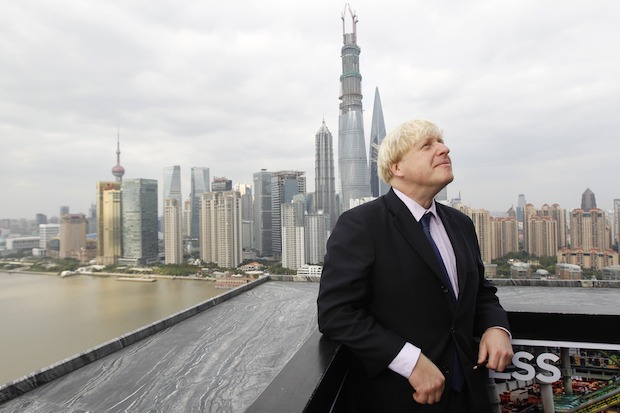The Conservatives do not have a problem in the North. As Policy Exchange’s report, Northern Lights, highlighted if you took the TransPennine Express train from Liverpool to Newcastle you would find that 13 of the stops are in Conservative held seats and 19 in seats held by Labour. The Tories’ real problem is in attracting support from urban voters, especially those living in inner city areas.
To put this into context the party does not have a single councillor in Liverpool, Manchester, Newcastle or Sheffield. Twenty out of London’s 32 boroughs are held by Labour. Just nine are Conservative. Yet Boris Johnson has won two consecutive Mayoral contests. So it can be done. The Tories can win over urban voters – and it’s vital that they do.
The future of electoral success for the Conservatives (perhaps not next May, but certainly from 2020 onwards) will depend on broadening the party’s appeal in urban areas where the population is predominantly younger and more ethnically diverse. But that’s easier said than done.
The party’s problem may not be policy. A large proportion of voters from different black and minority ethnic communities are small ‘c’ Conservatives, another Policy Exchange report, A Portrait of Modern Britain, shows. They believe in low taxes, have strong views on welfare and—contrary to what many people assume—back a tough stance on immigration. The problem is that they don’t trust these policies when they come of the mouths of Conservative politicians. Just 16 per cent of the total BME community voted ‘blue’ at the 2010 election and although progress has been made with certain communities – notably among Indian Sikhs and Hindus – there is still a huge amount of work to be done.
Building up trust with minority voters is incredibly important. By 2050 up to a third of the country could be non white – not due to immigration but because of the rise of mixed marriages and because minority communities have a much higher birth rate white Britons. Speaking at a Conference fringe event this week, Paul Uppal, MP for Wolverhampton South West, made the point that in his constituency it is vitally important that the local Asian community feel that they know their local representative. That means building up solid and long lasting relationships, attending community meetings and religious festivals. Even going to Molineux to watch Wolves play.
Speaking at the same event, Richard Harrington, MP for Watford (a three way marginal seat) said that ‘marginal MPs’ have a completely different mindset to ‘safe seaters’. Every week is critical to re-election. Pursuing pet projects in Westminster could jeopardise your chances at the ballot box, with the other parties waiting for any slip-ups to show the local media that their incumbent MP is not acting in the interests of local people. Harrington explained how his local Conservative association – or what’s left of it in Watford – simply didn’t have the resources, time or expertise to fight a campaign. He passionately made the case for a 10 year strategy where a local candidate would first be funded to fight a council seat and eventually have a professional team of campaigners behind him to run in a by-election or general election.
Harrington also made the point that micro-targeting individual households during a campaign was vital, especially in urban seats. One household may have strong views on the future of the armed forces due to a personal connection with the services. The next house along, however, may belong to a single parent with three dependent children – changes to child and housing benefits may be top of his or her list of priorities. What is clear is that data will become increasingly important for all parties, but especially to the Conservatives’ chances of success in cities.
The Conservative campaign group Renewal is working on an interesting project: They are exploring the potential of setting up a bursary scheme to attract a more diverse set of candidates to fight local and national elections on behalf of the party. The costs of running as a parliamentary candidate are substantial. People often forget how much time, effort and money it costs to run for a seat. Without the support of a partner, family and friends many of our MPs would not have made it to Westminster. Any scheme that makes it easier for people on lower incomes, from minority communities, etc, to become an MP should be supported.
Whether it’s finding and funding the right candidate, using data to build up a picture of households or attending as many local events as possible, what is clear is that in the build up to the next election and certainly beyond, the changing demographics of Britain means that the Conservatives have to make greater inroads into our cities. If they don’t, then the party will find it harder and harder to win sustainable majorities. The good news is that it can be done. Just look at the Mayor of London.
Nick Faith is Director of Communications at Policy Exchange. You can watch the fringe event referred to in the article here.






Comments